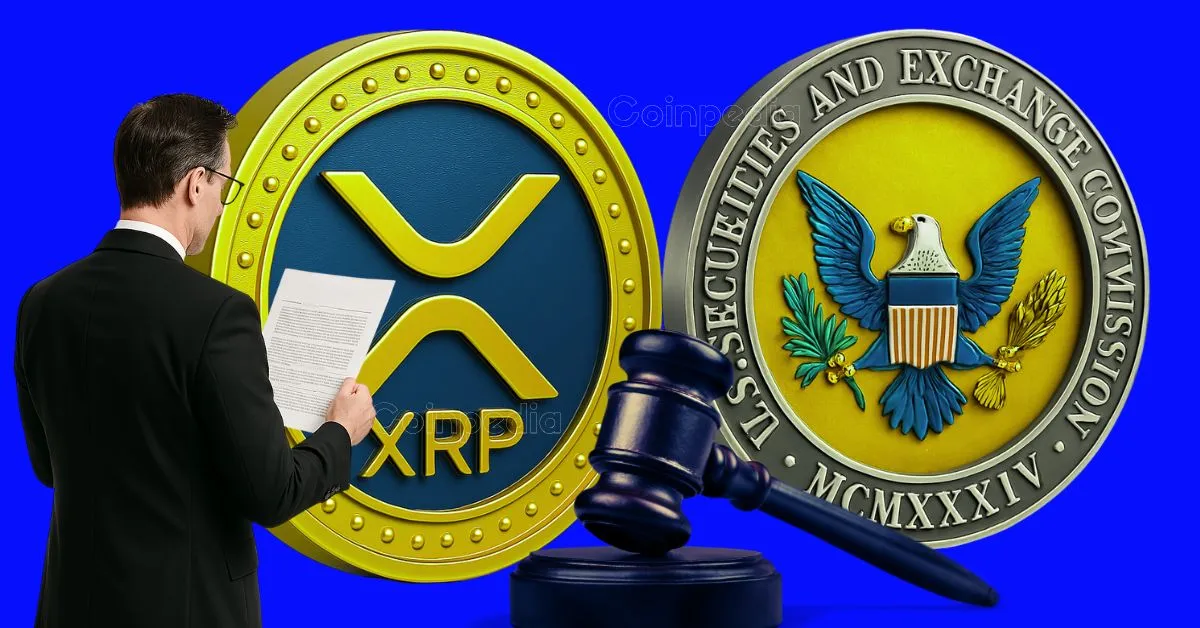The legal battle between Ripple Labs and the U.S. Securities and Exchange Commission (SEC) has been a defining saga in the cryptocurrency world. Since December 2020, when the SEC first filed its lawsuit, the case has been marked by intense legal debates, strategic maneuvers, and significant rulings. At the heart of the dispute is whether Ripple’s XRP token should be classified as a security, a determination that carries profound implications for how XRP is regulated and how Ripple can operate. As the case nears its conclusion, the crypto community is closely watching to see how this landmark decision will shape the future of digital assets.
The core of the conflict revolves around the SEC’s assertion that Ripple raised over $1.3 billion through the sale of XRP, which the agency claims was an unregistered securities offering. The SEC’s argument is based on the “Howey Test,” a legal framework used to determine whether an asset qualifies as an investment contract and, therefore, a security. If XRP is deemed a security, Ripple would have been required to register these sales with the SEC, a step the company did not take. Ripple, however, has consistently argued that XRP functions more like a currency than an investment contract, emphasizing its use in facilitating cross-border payments and other transactions. This distinction is critical to Ripple’s defense, as it challenges the SEC’s authority over XRP sales and could set a precedent for how other cryptocurrencies are treated under securities laws.
The case has seen several pivotal rulings that have shaped its trajectory. In July 2023, Judge Analisa Torres delivered a split decision, ruling that Ripple’s sales of XRP to institutional investors did constitute securities offerings. However, she also determined that Ripple’s sales of XRP on public exchanges did not meet the legal definition of a security. This mixed ruling was seen as a partial victory for both sides, but it also left many questions unanswered. More recently, Ripple decided to drop its cross-appeal against the SEC, a move interpreted by many as a sign that the company is seeking to bring the case to a close. Ripple’s Chief Legal Officer, Stuart Alderoty, confirmed this decision, signaling a willingness to move forward.
In the midst of these developments, the crypto community buzzed with rumors that the case could conclude as early as July 3rd. This speculation was fueled by the expectation that the SEC would hold a Commissioner’s vote on whether to drop its appeal. However, former SEC lawyer Marc Fagel quickly tempered these hopes, clarifying that July 3rd was not necessarily a decisive date. Fagel pointed out that the appeal dismissal process could take several weeks or even longer, and that Judge Torres would no longer be involved once the appeals are dropped. With both sides seemingly ready to drop their appeals, Judge Analisa Torres’s active role in the case has come to an end. Her initial rulings set the stage for the next phase, but the final resolution will likely involve administrative processes rather than further court hearings.
Even if Ripple and the SEC agree to drop their appeals, several key issues remain unresolved. One of the most pressing is the matter of remedies. The SEC has sought significant financial penalties from Ripple, arguing that the company profited handsomely from the alleged unregistered securities sales. The final amount of any potential fine is still up in the air, although recent reports suggest the SEC might keep $50 million of the Ripple fine and refund the rest to wrap the case. Beyond the financial penalties, the case has broader implications for regulatory clarity in the crypto industry. The lack of clear guidelines from the SEC has created uncertainty for crypto companies, making it difficult for them to navigate the legal landscape. The Ripple case could set a precedent for how other cryptocurrencies are treated under securities laws.
The Ripple vs. SEC case has undoubtedly cast a long shadow over the crypto industry. Its resolution, whether through settlement or further legal proceedings, will likely have a significant impact on the future of cryptocurrencies. A favorable outcome for Ripple could boost confidence in the market and encourage other companies to innovate in the blockchain space. Conversely, a harsh ruling against Ripple could deter investment and stifle innovation. Several other factors could influence the future of the case. Leadership changes within the SEC, for example, could lead to a shift in the agency’s approach to crypto regulation. Recent settlements between the SEC and other crypto companies, such as Coinbase and Robinhood, suggest that the agency may be adopting a more pragmatic approach.
As Ripple and the SEC navigate the final stages of their legal battle, the crypto community remains on tenterhooks. While the dropping of appeals signals a potential end to the courtroom drama, important issues such as remedies and regulatory clarity still need to be addressed. Whether the end is truly near remains to be seen, but one thing is clear: the outcome of this case will shape the future of the crypto industry for years to come. The resolution of this case could provide much-needed clarity for the broader cryptocurrency market, potentially paving the way for more innovation and investment. However, the lack of a definitive ruling on key issues could leave the industry in a state of uncertainty, forcing companies to continue navigating a complex regulatory landscape. Regardless of the outcome, the Ripple vs. SEC case will be remembered as a pivotal moment in the evolution of digital assets and their place in the financial world.











